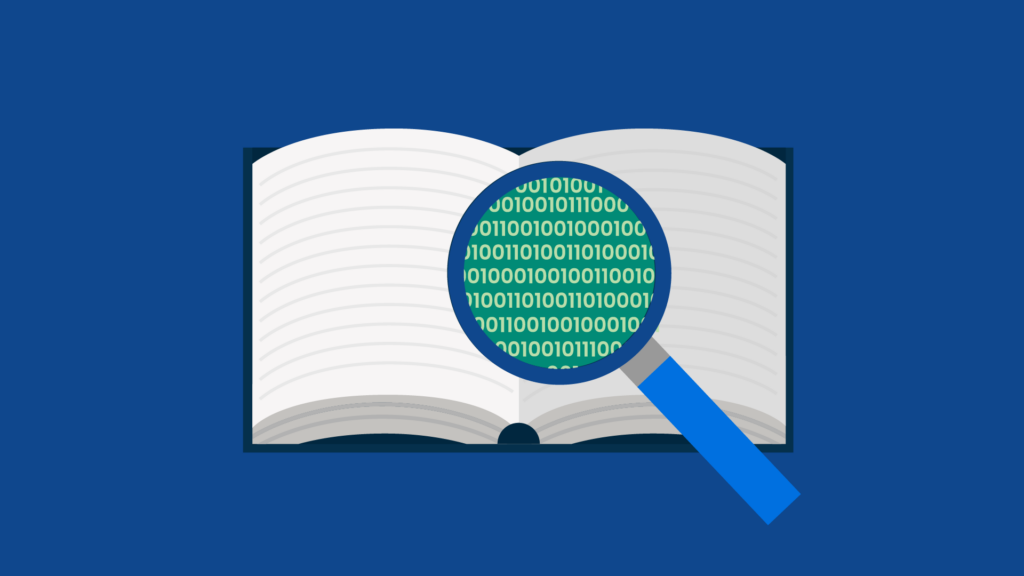Can artificial intelligence (AI) provide legal advice? This very question has sparked many debates within law firms, courtrooms, and beyond. With its ability to analyze large amounts of data and interpret complex legal concepts, AI holds numerous possibilities in law. However, it also raises significant concerns.
In this post, we delve into the promise and pitfalls of using AI for legal advice. Whether you’re an experienced attorney navigating AI and the ever-changing legal landscape or simply curious about technology’s future possibilities, read on for an insightful exploration into the confluence of AI and legal advice.
How can AI provide legal advice?
AI technologies—particularly those employing machine learning algorithms—analyze vast amounts of data to identify patterns, extract relevant information, and make predictions. Today, lawyers are using AI to enhance legal advice in numerous ways, from reviewing contracts to conducting legal research and forecasting case outcomes. Many are also using AI-driven chatbots, like ChatGPT, which draw upon their training data to instantly respond to queries.
The challenge with these technologies is that they are trained on open datasets that aren’t always suitable for legal tasks. Fortunately, a new crop of AI tools that cater to the unique needs of legal professionals are beginning to emerge. Take Harvey AI, for example. The secure AI platform feeds specific legal information—including case law and reference materials—to deliver insights and recommendations tailored specifically to law. Some firms have also developed their own in-house AI tools to deliver even more personalized responses and ensure client confidentiality.
It’s important to note that AI can’t provide legal advice on its own. Rather, the technology can aid lawyers in their work and empower them to be more effective. Research from Stanford and MIT highlights this potential, showing that AI tools like chatbots helped boost worker productivity by an impressive 14%. By freeing up lawyers’ time, AI tools enable lawyers to focus on more strategic tasks—and that enhances the quality of the legal advice they provide.
Unlocking the benefits of AI for legal advice

Today, a growing number of legal professionals have turned to the power of AI to work smarter. Clio’s 2023 Legal Trends Report found that nearly one in five (19%) legal professionals now use AI in some way in their practices. Many more— 51% of legal professionals, to be exact—reveal they’d like to see AI used more frequently in their practice in the future.
Legal advice is one area where firms can benefit from leveraging AI. Here are three reasons why lawyers are increasingly turning to AI for legal advice:
- It saves time. AI acts as a research assistant that’s capable of swiftly sifting through vast repositories of legal documents, case law, and more—in a fraction of the time it would take a human. This drastically reduces the hours lawyers spend on manual tasks, allowing them to focus on higher-level work.
- It fosters creativity. By analyzing large volumes of data and identifying patterns, AI serves as a valuable resource for generating novel perspectives. These insights can inspire new, innovative approaches to legal challenges, enabling lawyers to pursue avenues that would otherwise remain unexplored.
- It increases access to justice. By automating routine legal work and streamlining processes, AI allows lawyers to deliver more efficient legal services. This translates into savings for both law firms and clients, making legal services more accessible to those who need it most.
What are the ethical considerations for using AI for legal advice?
AI delivers many rewards, but it’s not without risks. It’s crucial to recognize that AI technology cannot replace the role of lawyers when it comes to delivering legal advice. AI is still largely in its infancy, and there are limitations to its current capabilities. Below, we’ve outlined a few key ethical considerations when using AI for legal advice.
- Maintain client confidentiality. The 2023 Legal Trends Report found that 57% of legal professionals are concerned about client privacy and confidentiality issues when using AI. To address this, stringent protocols must be implemented to ensure client information isn’t compromised. For instance, be sure to use tools that adhere to the highest security and privacy standards and always anonymize client information before inputting data into AI solutions.
- Ensure transparency and accountability. AI systems have been known to produce inaccurate information and fabricate facts—a phenomenon known as hallucination. Therefore, lawyers must verify the accuracy of information provided to avoid misguiding clients or making erroneous legal decisions. It’s also important to use algorithms that are transparent and allow for a clear understanding of how decisions are made.
- Address ethical and bias considerations. AI algorithms may inadvertently perpetuate biases that are present in their training data. As a result, lawyers must be vigilant in identifying these biases and taking steps to mitigate them to ensure equitable outcomes for their clients.
At the end of the day, lawyers bear responsibility for the legal advice they provide and shouldn’t rely solely on AI-generated work or deliver advice to clients without thoroughly reviewing it for accuracy. For additional insights into the intersection of AI and ethics in law, check out our comprehensive post on AI ethics for lawyers.
How could I use AI for legal advice?

Although its popularity has soared, the use of AI in law isn’t new. Legal professionals have been using the technology for mundane tasks, such as extracting information from a vast number of documents during e-discovery, for quite some time. However, AI’s possibilities in the realm of law have multiplied in recent years. Below are just a few examples of how innovative law firms are harnessing AI for legal advice.
- Document review and analysis: Document review has long been deemed a tedious aspect of law. So, it’s no surprise that many are using AI tools to streamline the process. Lawyers can use AI to automatically analyze legal documents like contracts to extract clauses, spot issues, and more.
- Document automation: AI-powered legal document automation references large databases of routine legal documents to generate new documents faster than ever, eliminating hours of work. While legal professionals still need to make refinements, the process is dramatically expedited with AI.
- Predictive analytics: AI tools like Premonition analyze vast amounts of past case data to forecast future case outcomes. This empowers lawyers to make more informed decisions regarding settlements, plea bargains, and other legal strategies—thereby offering more strategic and effective advice to their clients.
- Legal research: AI-powered legal research tools can sift through large databases of regulations, statutes, case laws, and more to locate relevant information in record time. By reducing the effort required for legal research, AI empowers legal professionals to conduct thorough analyses and provide well-informed advice to their clients.
How to use AI for legal advice safely
AI can be beneficial in supporting legal advice, but it’s essential to ensure that it is used in a responsible manner. To help, here are a few guidelines to follow when using AI for legal advice.
Stay up to date on regulations.
Be sure to also stay abreast of the constantly evolving regulations and ethical guidelines regarding AI’s use in law. Before integrating the technology into your legal practice, check whether any restrictions or guidelines on the use of AI have been imposed by your local state bar association.
Recently, California approved generative AI guidelines, while the Florida Bar also issued a proposed advisory opinion, and the New York Bar Association created an AI task force. In addition to this, the ABA also announced the creation of a task force to address the legal challenges of AI. Our latest post offers a closer look at what bar associations have to say about AI use.
Take responsibility.
While AI can assist in various legal tasks, it’s key to remember that the ultimate responsibility lies with the lawyer. Recently, there have been instances of lawyers submitting AI-generated court documents containing fabricated cases. To prevent this from happening to you, carefully scrutinize AI-generated work and supplement it with your own research to check for accuracy and potential bias. Finally, trust your instincts when using AI for legal advice—if something seems questionable, seek additional clarification.
View AI as an enhancement, not a replacement.
Ultimately, the key to harnessing AI is to view it as a valuable tool to augment your legal practice rather than replace your expertise and judgment. While AI is especially powerful in streamlining tasks, gathering insights, and augmenting your decision-making process, always rely on your own wisdom and experience to make informed decisions.
Final thoughts on using AI for legal advice
AI holds immense promise in helping lawyers save time, work more effectively, and reduce costs. But at the same time, it’s crucial to exercise caution when relying on these tools for legal advice. Instead of viewing AI as a substitute for tasks, it should be regarded as a supplement to legal work. Remember: when used strategically, AI can go a long way in helping law firms stay competitive and deliver exceptional service to clients.
The legal industry has only begun to scratch the surface of AI’s immense potential—and more advances are poised to reshape it in the months and years to come. Clio Duo is one of them. Available in 2024, the dynamic AI-powered partner helps legal professionals make the most of each working day by summarizing legal documents, issuing reminder prompts for overdue tasks, offering personalized recommendations to prioritize tasks, and more.
If you’re ready to explore all the different ways that legal technology can boost your firms efficiency and effectiveness with cloud-based legal practice management software, try for free Clio today.
Is there an AI that gives legal advice?
AI-driven tools exist to support lawyers in delivering legal advice. These systems use natural language processing and machine learning techniques to analyze legal documents, precedents, statutes, and more. However, it’s important to note that AI should be used as a tool to augment legal professionals’ work rather than replace them entirely.
Clio Duo is Coming Soon
Meet Clio Duo, the AI-powered partner you've been waiting for. Be among the first to see it in action.
Notify me when Clio Duo is ready


